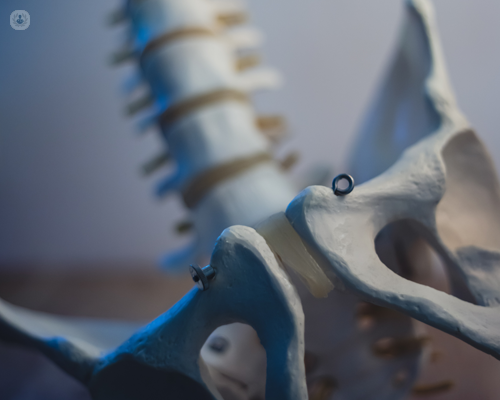What's the best treatment for osteoporosis?
Escrito por:The best treatment for osteoporosis typically involves a combination of lifestyle changes, medications, and supplements aimed at strengthening bones, preventing fractures, and slowing down bone loss. A condition where bones become weak and brittle, it often affects older adults, particularly postmenopausal women. A personalised treatment plan is essential, as the best approach can vary depending on the severity of the condition, age, and overall health of the individual. Here to tell us all about it, is leading specialist in integrative medicine Dr Federica Boecklin.

What lifestyle changes can I make?
- Diet: Ensuring adequate intake of calcium and vitamin D is vital for bone health. Dairy products, leafy greens, and fortified foods are good sources of calcium, while sunlight exposure and supplements can help maintain sufficient vitamin D levels.
- Exercise: Weight-bearing and resistance exercises are crucial for improving bone density and strength. Activities like walking, dancing, and lifting weights can help maintain and increase bone mass.
- Avoiding smoking and excessive alcohol: Both smoking and high alcohol consumption can accelerate bone loss. Quitting smoking and moderating alcohol intake are key steps to preserving bone health.
What are the different medications available for osteoporosis?
Several medications are commonly prescribed for treating osteoporosis, each with different mechanisms of action:
- Bisphosphonates: These are the most widely prescribed medications for osteoporosis. They slow down bone breakdown and are usually the first-line treatment. Common bisphosphonates include alendronate, risedronate, and zoledronic acid.
- Denosumab: This is an injectable medication that helps prevent bone loss by inhibiting the activity of cells responsible for breaking down bone tissue.
- Parathyroid hormone analogues (e.g., teriparatide): These are reserved for more severe cases of osteoporosis and work by stimulating bone formation rather than just slowing bone loss.
- Selective oestrogen receptor modulators (SERMs): These medications mimic the effects of oestrogen on bones and are often used in postmenopausal women to help maintain bone density.
- Hormone replacement therapy (HRT): For some postmenopausal women, HRT may be beneficial in maintaining bone density, although its use is typically limited due to the potential risks associated with long-term hormone therapy.
Supplements
- Calcium and vitamin D supplements are often recommended if dietary intake is insufficient. Adequate levels of both are crucial for maintaining bone health, particularly in older adults or those with osteoporosis.
Reducing the risk of a fall
Preventing falls is another crucial component of osteoporosis treatment, as even minor falls can lead to fractures in people with brittle bones. Measures like improving home safety, using assistive devices, and strengthening balance through exercises can help reduce the risk of falls.
In summary, the best treatment for osteoporosis involves a comprehensive approach combining medications, lifestyle modifications, and supplements to improve bone strength, prevent fractures, and slow the progression of the disease. Consulting with a healthcare professional is essential to developing an individualised plan.
Do you require gold standard osteoporosis treatment? Arrange a consultation with Dr Boecklin via her Top Doctors profile.


